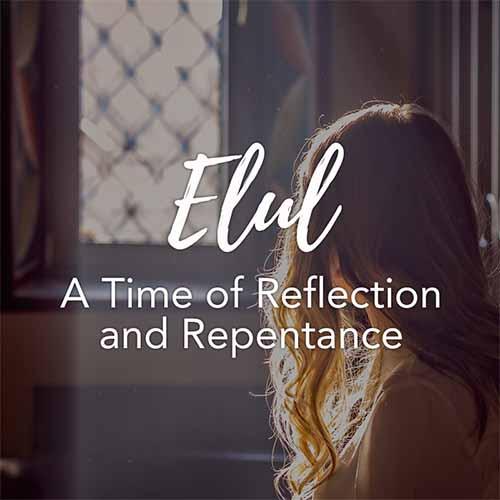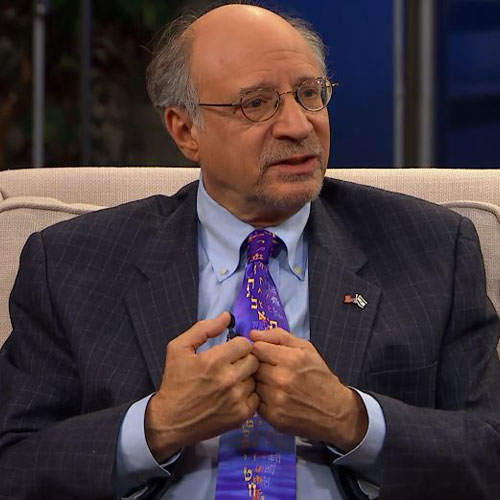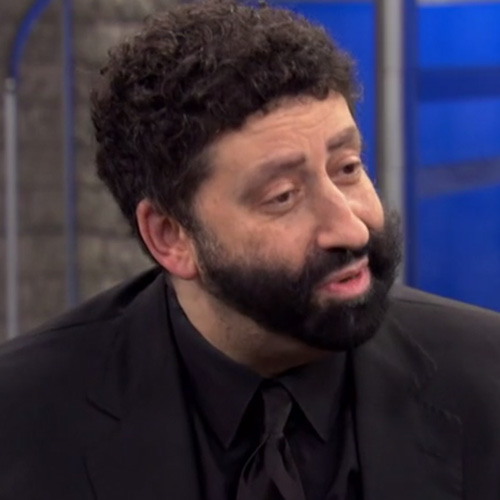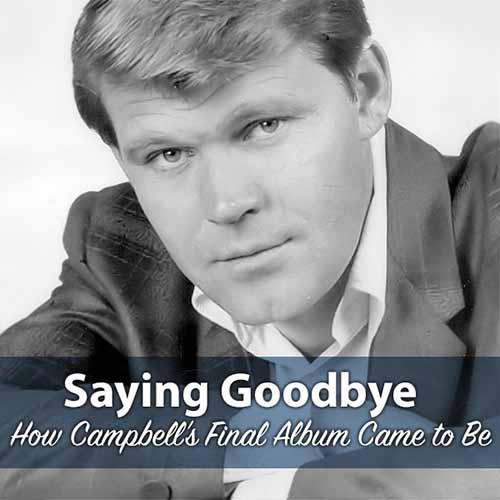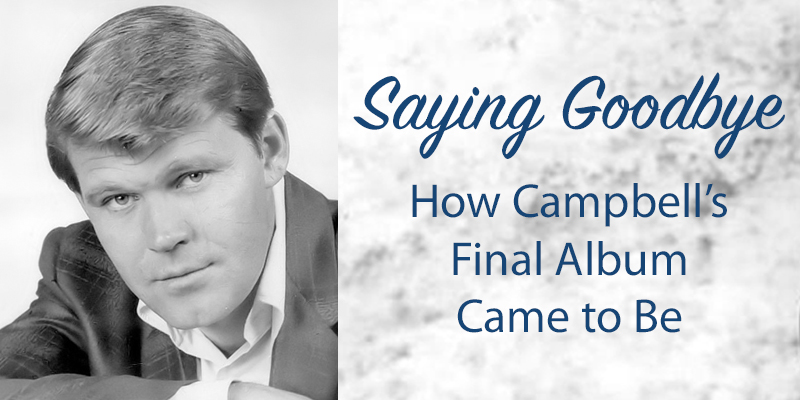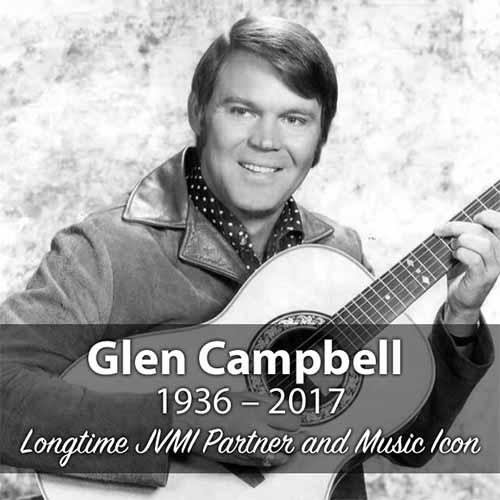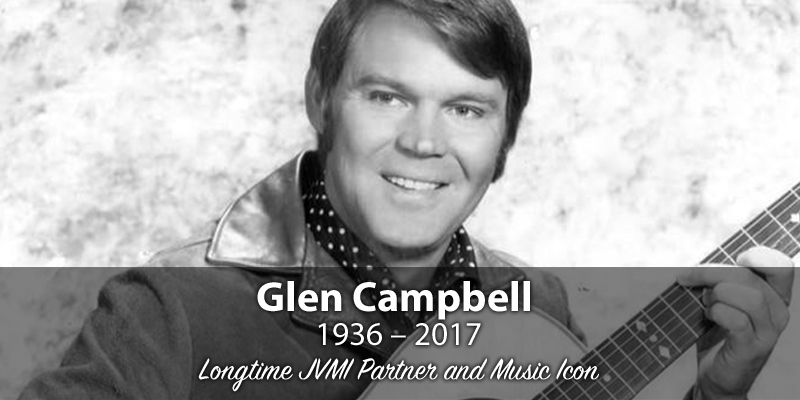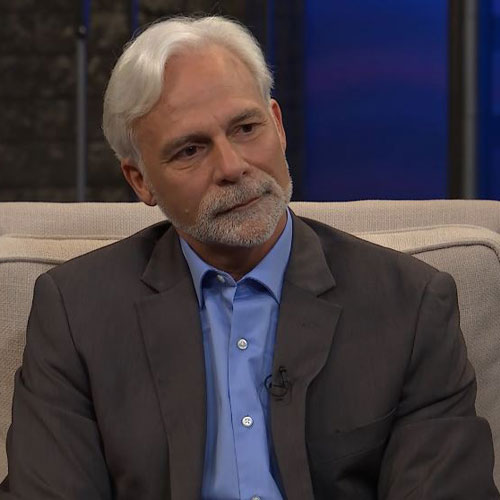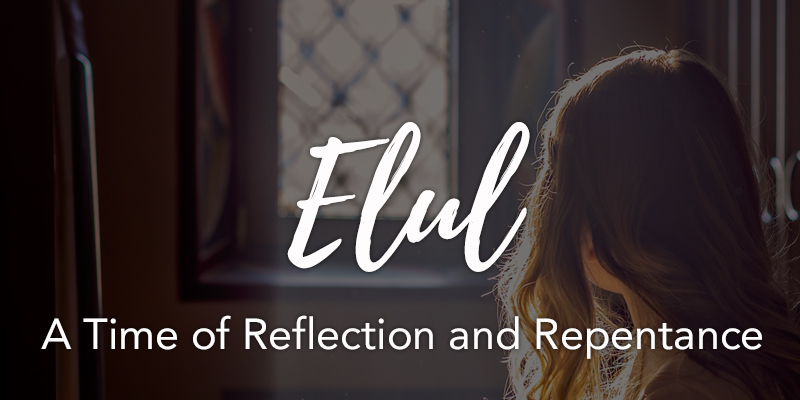
Search me, O God, and know my heart. Examine me, and know my anxious thoughts, and see if there be any offensive way within me, and lead me in the way everlasting.– Psalm 139:23-24 TLV
The Hebrew month of Elul falls in August/September. It lies between the months in which Israel committed its two great sins (worshipping the golden calf and the evil report by the 10 spies) and the High Holy Days during which Jewish people believe God makes and seals His judgment on them for the following year. Thus, Elul has become a month of accounting and repentance in preparation for Rosh Hashanah and Yom Kippur.
In this post-Temple era when sacrifices are no longer possible, Jewish people consider King David’s words from Psalm 51:
For You would not delight in sacrifice, or I would give it, nor be pleased by burnt offerings. The sacrifices of God are a broken spirit. A broken and a contrite heart, O God, You will not despise.
― Psalm 51:18-19 TLV
They reflect on their lives over the past year and focus on making amends and seeking God’s mercy for the coming New Year.
Elul contains 29 days. There are 40 days from the 1st of Elul to Yom Kippur. This is reminiscent of Moses’ time on Mount Sinai when he interceded for the Hebrew people who had fallen so quickly into idolatry. Because God was merciful and forgave His people, Elul is known as the month of divine mercy and forgiveness.
Customs of Elul
Traditions for the observance of Elul include an increase in gifts of charity, called tzedakah (tzeh-DAH-kah) in Hebrew, and reciting Psalm 27 twice a day throughout the season. An 18th-century rabbi added the ritual of reading through the book of Psalms with three psalms read each day between the 1st of Elul and Yom Kippur. The final 36 psalms are recited on Yom Kippur to complete the book.
The shofar is blown every morning except Shabbat during Elul. This call to worship serves as a reminder to examine one’s life and go before God in contrition. Selichot (s’lee-KHOHT) are special prayers of repentance spoken during Elul. Some Jewish sects begin adding selichot on the first day of the month while others start them closer to Rosh Hashanah.
Attaining right standing with God
For Jewish people, the focus of the month is to attain a right standing with God so that He will assign a favorable judgment. According to Jewish tradition, God makes this judgment for the coming year on Rosh Hashanah, the “head of the year,” and seals it on Yom Kippur, the Day of Atonement. The traditional greeting during Elul and these Holy Days is, “May you be inscribed and sealed for a good year.”
Are You an Israel Expert?
Jewish Voice Ministries shares biblical insight as to why God wants you to have a heart for Israel and the Jewish people. Take this quiz to discover how much you know about the State of Israel, the Promised Land, and God's chosen people.
Messianic Judaism and Yeshua’s atoning sacrifice
Messianic Judaism recognizes that Yeshua (Jesus) made eternal atonement when He laid down His life as the Lamb of God. For those who have placed their faith in Him, our position as God’s adopted sons and daughters is secured forever. Ephesians 2:8-9 tells us that we are not saved by our deeds, but by God’s grace and faith in Yeshua’s sacrifice. The Holy Spirit was given to Believers as a seal and promise of God’s acceptance and our new relationship with Him.
Because Yeshua addressed our sin once and for all, we don’t have to wonder year after year if God will have mercy on us at Yom Kippur. We don’t have to scramble to get right for an annual judgment or ramp up our giving to charity to end the year in good standing.
What a gift! What a blessing to know we have been granted right standing with God forever because Yeshua died for us on the executioner’s stake. He took our sin upon Himself and paid the price for us.
Always room for repentance
However, as Believers, we know that we continually fall short of God’s desires for the way to live our lives. Though our eternal standing is secure, our fellowship with God is affected by the sinful nature within us. So, there is always room for repentance. It is an ongoing need in our lives.
Just as the annual Thanksgiving holiday invites us to embrace gratitude each day of the year, so Elul is an opportunity for Messianic Jews and Gentile Believers to re-focus on repentance. It is a reminder to let God reign in our daily lives and seek to glorify Him more. Repentance – turning our hearts from sin and to God in restored fellowship – is a habit to pursue. Elul reminds us of that.
Elul, in Messianic Judaism, encompasses thankfulness for Yeshua’s atoning sacrifice and the Holy Spirit’s sealing as well as examining our hearts to remain in close fellowship with God. As the shofar sounds in synagogues each day during Elul, let’s also use this period to pray that God will lift the blindness from Jewish eyes and that they will receive their Messiah, Yeshua.
Are You an Israel Expert?
Jewish Voice Ministries shares biblical insight as to why God wants you to have a heart for Israel and the Jewish people. Take this quiz to discover how much you know about the State of Israel, the Promised Land, and God's chosen people.



